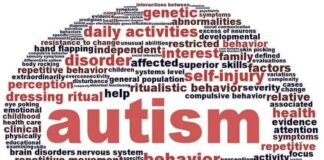How is encephalitis diagnosed?
To diagnose it, the doctor asks questions about the symptoms, examines the person and carries out some tests on samples taken from the person. The information gotten is used to confirm whether or not it is encephalitis that the sick person has.
How is encephalitis treated?
The affected person is usually admitted and treated in a hospital for some days using medications, fluids, and rest.
Whether or not the person needs additional treatment, depends on how severe the disease is and the complications of the disease that the person suffers.
Some of the additional therapies that someone who suffers from encephalitis may need include speech therapy, physical therapy, psychotherapy and occupational therapy.
What complications can arise from this disease?
- Changes in behaviour and personality;
- Memory loss;
- Visual, speaking and hearing problems;
- Difficulty breathing;
- Persistent tiredness;
- Coma;
- Weakness and lack of muscle coordination;
- Problems with planning, attention, problem-solving and concentration; and
- Frequent seizures.
How do you prevent encephalitis/?
It is not exactly possible to prevent this disease. But infections by the organisms that can lead to encephalitis can be prevented – this reduces the risk of getting it.
Some of the tips for preventing encephalitis include:
- Taking vaccination – there are vaccines for many of the viruses that cause this disease. For instance, the MMR (measles, mumps, rubella) vaccine.
- In cases where the disease results from tick bite, steps should be taken to prevent or reduce contact with ticks. Some of these steps are – frequently check pets and children for ticks; reduce the amount of time children spend in contact with plants and soil; and wear light-coloured, long sleeved clothes.
- In cases where the disease can be associated with a mosquito bite, the following are important preventive steps – use insect repellent; stay away from the outdoors at dawn and dusk (because these are the times when mosquitoes are most active), and wear long-sleeved protective clothing.
Did you know that World Encephalitis Day IS CELEBRATED on the 22nd of February?
It is a day set aside worldwide to raise awareness on the condition. The World Encephalitis Day was founded in 2014, by The Encephalitis Society.









